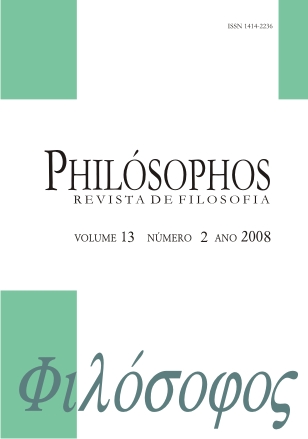TR(A)NSICIONAL OBJECT: A LACANIAN REREADING
DOI:
https://doi.org/10.5216/phi.v13i2.4005Keywords:
object, Lacan, Winnicott, philosophy, psychoanalyze.Abstract
This article intends to follow the path of building the notion of object in relation to the démarche Lacanian, as well as locate elements of rapprochement with Winnicott's transitional object. For accomplish our purpose, we begin with the object definition as proposed by Freud - (1) as the correlate of drive; (2) as the correlate of love and (3) in relation to the subject - and indicates the Lacanian option of emphasize the dimension of language in a reading that focuses on Freud's theory and technique as a whole. In this context, Winnicott arises as an author that, proposing the concept of transitional object, allows Lacan's presentation of the distinction between the symbolic and imaginary records in relation to concepts of desire, demand and need while enabling the construction of a proper concept of object. One can consider that, in his formulations, Lacan does criticize the post-freudians for producing a deviation of the technique and doctrine of Freud in disregarding the subject's speech, favoring a practice of interpreting resistance. Winnicott is then greeted as a distinguished author, a post-Freudian psychoanalyst post that doesn't deviates from freudian's precepts and takes the clinic as its main support. The theoretical relations of approximation and distanciation between Lacan and Winnicott, allow us, in the body of this article, to problematize the bound between the concepts of object a and transitional object.Downloads
Downloads
Published
How to Cite
Issue
Section
License
Authors who publish in this journal agree to the following terms:
- Authors retain copyright and grant the journal right of first publication, with the work simultaneously licensed under a Creative Commons Attribution License that allows others to share the work with an acknowledgement of the work's authorship and initial publication in this journal.
- Authors are authorized to enter into separate, additional contractual arrangements for the non-exclusive distribution of the journal's published version of the work (e.g., publishing in an institutional repository or as a book chapter), with an acknowledgement of its authorship and initial publication in this journal.















